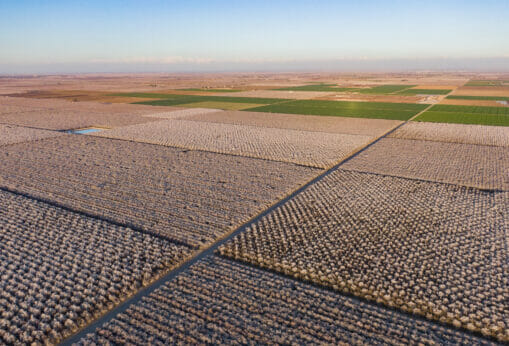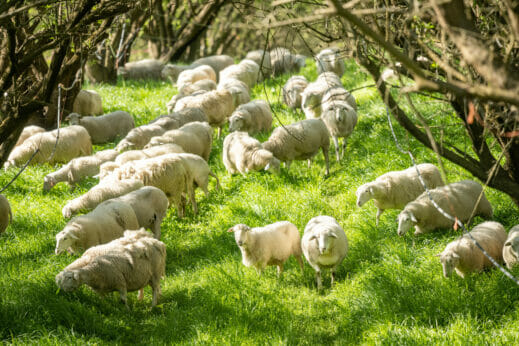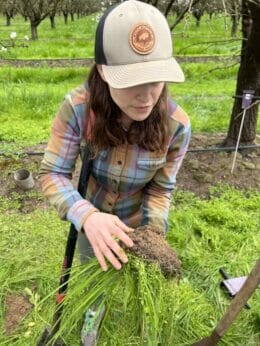Almonds are Under Threat. The Key to Saving Them Could Be in the Soil
Rising temperatures, lack of water and encroaching development are creating tough conditions for the crucial California crop. Their continued viability could all depend on strengthening the lands on which they sit.





As an almond grower, I appreciate this article. It points to some of the challenges that we (as farmers, and as Californians) face. Most importantly it highlights how “expensive” our food is, in terms of water consumption. Sadly, the urban shopper/voter has no appreciation of this reality. Water scarcity is one aspect. The fact that many growers can ill afford to “experiment” with cover crops and/or expensive irrigation technologies is also lost. An underreported fact is that in recent years many almond growers farmed at a loss. I also question the pastoral image of sheep grazing in the almond orchard.… Read more »
The solutions exist, courageous individuals need to step up to show the way by doing something different than what everyone else around them is doing. For one, many farms have irrigation ponds, it’s a normal infrastructure capital expense. There are other ways of constructing a pond however which will actually capture surface runoff and subsurface water, hold the water on the landscape for longer and allow it to slowly seep into the surrounding soil, recharging the groundwater and creating favorable soil conditions for our crops, as well as serving as a reservoir for irrigation water to draw from. We should… Read more »
Im my home province of Prince Edward Island, where water is essentially limitless, soil erosion is a major issue because of the hilly terrain and destructive industrial potato farming practices – here also soil quality, which means a high organic content, is essential. Good quality soil, because it retains water, is much less susceptible to erosion.
Also believe CA needs more reservoirs to store rain water/runoff. Money is there for the work, but environmentalists and other opponents keep holding things up. We lost a lot of water this past winter and will lose even more this winter, supposedly an El Nino winter.